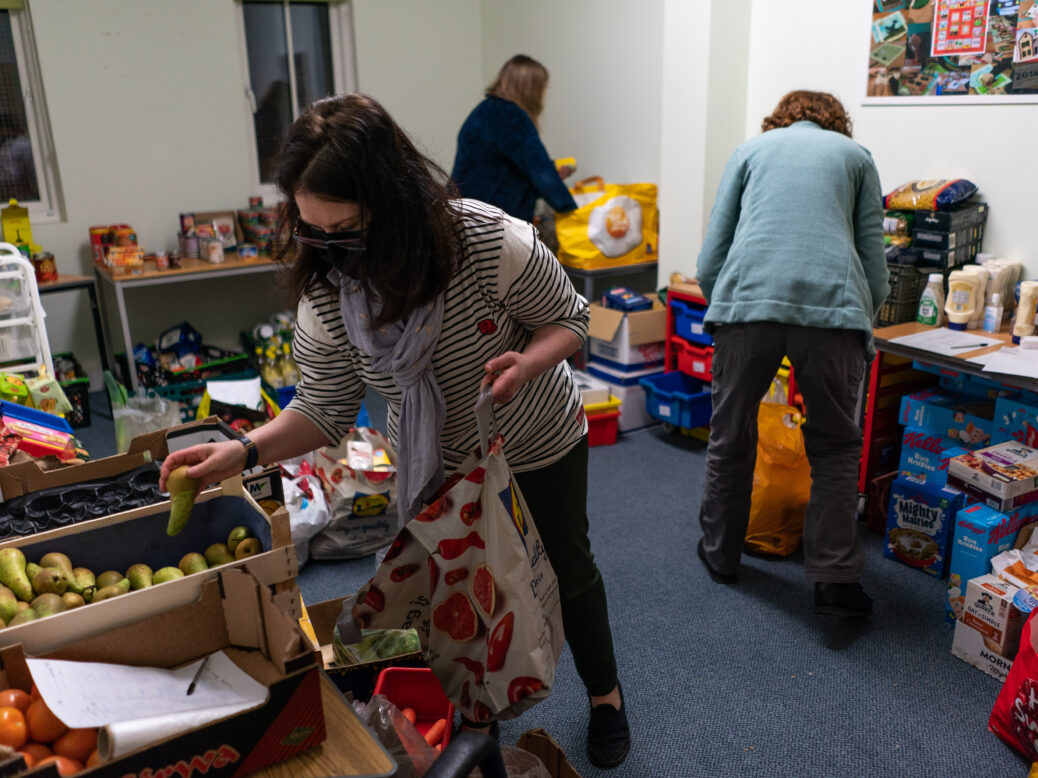
Families in the UK are facing economic catastrophe: with a cost-of-living crisis and a recession just around the corner, they have a government that seems unwilling to offer much support to those most in need. Prime Minister Liz Truss has failed to commit to raising benefits in line with inflation, while her chancellor, Kwasi Kwarteng, has outlined wide-ranging tax breaks for the wealthiest.
The burden of supporting those in need will, yet again, fall on charities. Indeed, there have already been reports of food banks running out of supplies, as price rises have simultaneously forced more people to rely on them and reduced the number of donations from the public.
But this trend predates the current crisis. Charities have been picking up the slack left by the British welfare state for more than a decade.
In 2010, David Cameron launched the “Big Society” as part of the Conservatives’ election manifesto that year. To its champions, this was a genuine, post-Thatcherite political ideal, whereby charities and other local actors who knew their communities well would step up and provide services previously run by public authorities. To its critics, this was a cynical cover-up for the government’s austerity programme, which led to an estimated 40 per cent real-terms cut in public services by 2020.
Whatever the intention, the charitable sector was forced to multiply its efforts in the 2010s to support society’s most vulnerable as they faced the effects of austerity. Even after the Cameron years, however, the disparity was never realigned: the UK is still much more reliant on charities for social support today than it was in 2010. It is difficult to get a comprehensive view of current conditions. As Rachel Statham, from the Institute for Public Policy Research (IPPR) think tank, explained, “It is difficult to compare what the charitable sector looks like now compared to pre-austerity, because it is such a dynamic sector that continually shifts to changing needs on a very localised level.”
But there are indications about what has happened. One of these is food banks. Before austerity hit, food banks were a minor phenomenon, with 41,000 three-day food packages handed out by the country’s largest food-bank charity, the Trussell Trust, in 2009-10. By 2014-15, this figure had hit 1.1 million; and by 2020-21 – long after the former chancellor George Osborne’s programme of cuts had supposedly ended – it had reached 2.6 million.
Report after report has made it clear that this increase was about rising costs and falling income, not about increasing access to services. A landmark All-Party Parliamentary Inquiry into Hunger in the UK, published in 2014, said that the rise in food banks is a harsh reflection of how “the rising costs of living have hit Britain’s poorest households particularly hard”.
The same report praised food-bank volunteers as a “social Dunkirk”, but said the government could not continue to rely on the voluntary sector to provide social security. Nine years later, more than 40,000 volunteers continue to give up their time to support the Trussell Trust’s 1,200 food banks.
It is very hard to draw a direct link between cuts to specific social benefits and the fact that charities have increasingly been called on to provide food and shelter. Nevertheless, the decline of government social security payments since 2010 is stark. In parallel, third-sector forces have been playing an increasingly important role in providing social safety nets.
Data shared with the New Statesman by the New Economics Foundation think tank shows that, between 2010-11 and 2020-21, there was a £14bn cut to the UK’s benefits system. In 2019, for example, the number of working-age households in receipt of benefits was 24 per cent lower than in 2010. And the amount they receive has fallen too: in 2021, those on unemployment benefit were receiving 12 per cent less than in 2010, when adjusted for inflation.
Another way of tracking how charitable giving has replaced government action is by looking at where charities get their money. This is because charities don’t only spend the money donated to them by the public: they also fulfil a range of services – from healthcare to environmental conservation – on behalf of the government, using government money.
Data shows charities now receive much less money from the government than they did pre-austerity, with private donors picking up much more of the funding slack. In 2007-08, the charitable sector received 36 per cent of its income from the government, according to research by the think tank Pro Bono Economics. By 2017-18, this had fallen to 29 per cent, which shows the decline in financial support from the government has not recovered even years after Cameron left office. New Philanthropy Capital projected that the charitable sector would lose up to £5.1bn – or 40 per cent of state funding – in the initial round of government spending cuts following Cameron’s election.
What we are left with is a picture of hollowed-out government services and funding streams, and charities, ever more reliant on public donations, trying to make up the difference. The latest economic crises will only make this already troubling situation worse.
“We are looking at energy bills increasing and inflationary pressures at a level where there isn’t really a precedent,” said Latham. “We know that charitable budgets have already been under considerable strain throughout austerity and more recently [in] the pandemic. And now they will be called on to make up for the woeful lack of government action on the cost-of-living crisis.”
[See also: The Tories are trapped. What can they possibly do now?]




